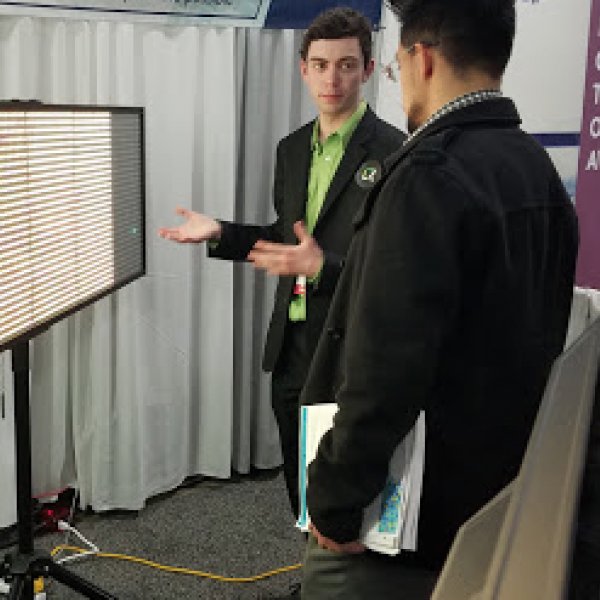A portable concussion detection machine created by three college students, including one Cornell computer science major, was shown at the Consumer Electronics Showcase, Jan. 5-8 in Las Vegas.
The device from Reflexion Interactive Technologies, founded by Patrick Walsh ’19 and high school friends Matthew Campagna and Matthew Roda, can measure an athlete’s peripheral awareness, balance and reaction time quickly on the sidelines, allowing coaches to make better decisions about whether to return an athlete to play, Walsh said.
“It was great practice to showcase our device, explain it concisely yet expertly, and get media attention for what we’ve worked so hard on,” said Walsh, who is studying computer science. “There was a lot of support for our product, and even many touching stories of people who have suffered tremendously from concussions.”
The trio thought of the idea for the product while sitting in a high-school programming class where a substitute teacher (the gym coach) started a discussion about the poor performance of existing technology to diagnose concussions.
Coaches and trainers use various tools to diagnose concussions, ranging from asking simple questions to the injured player to devices like the computerized neurocognitive ImPACT test.
Walsh said their product, Reflexion Edge, is meant to be used at the beginning of the season and then frequently during the season, to pick up injuries regardless of whether or not they are reported by athletes. It also measures several different factors and offers immediate analysis, comparing data to earlier tests and allowing coaches to make objective decisions about returning athletes to play.
This year, the company is conducting a six-month clinical study with the Center for Sport Concussion Research at Pennsylvania State University, where Roda attends college, and working with Semyon Slobounov, a Penn State professor of kinesiology who researches sports-related traumatic brain injuries.
“By the end of the spring semester, we will have meaningful data from Penn State,” Walsh said. “Using the new data, we will take our device and begin running paid beta tests in high school athletic programs, probably for the start of the fall sports seasons.”
-- from the Cornell Chronicle



